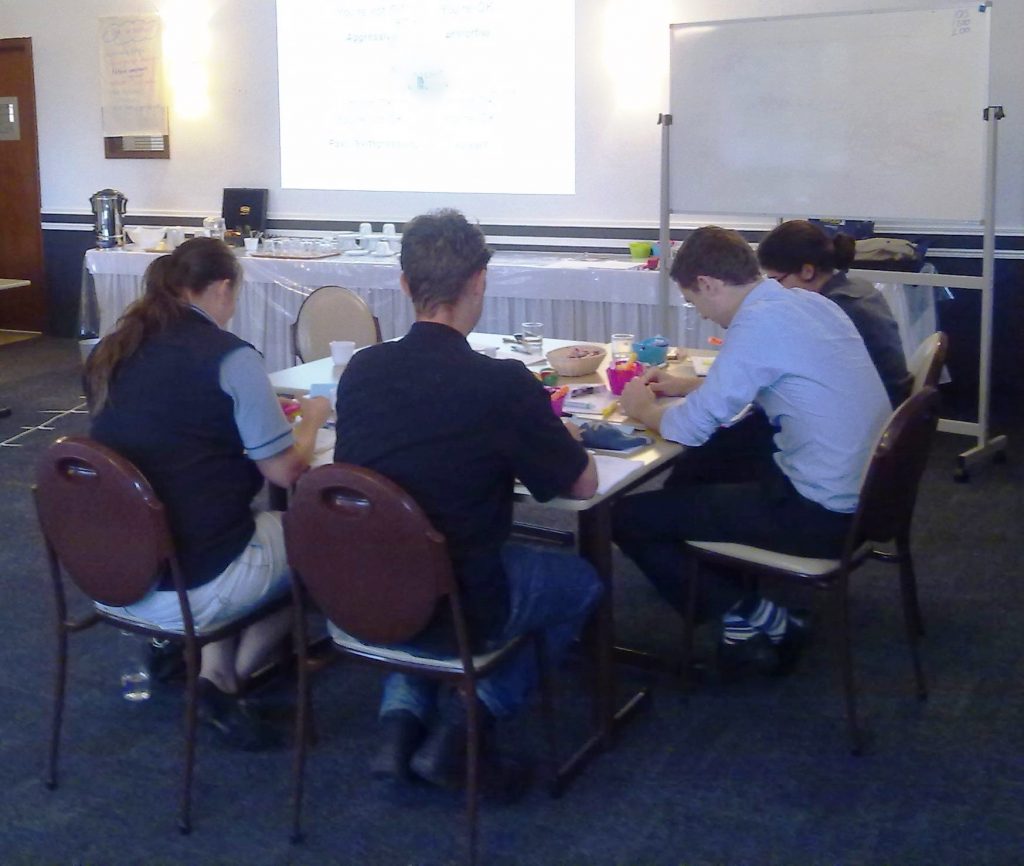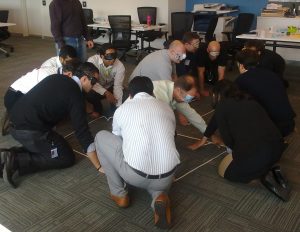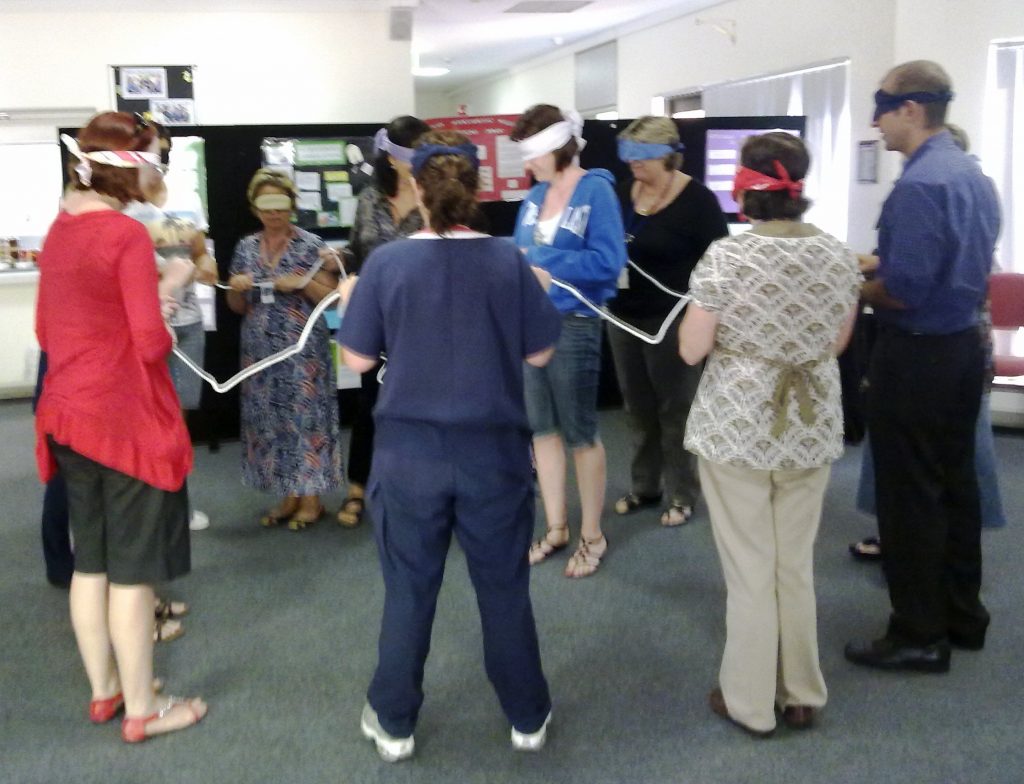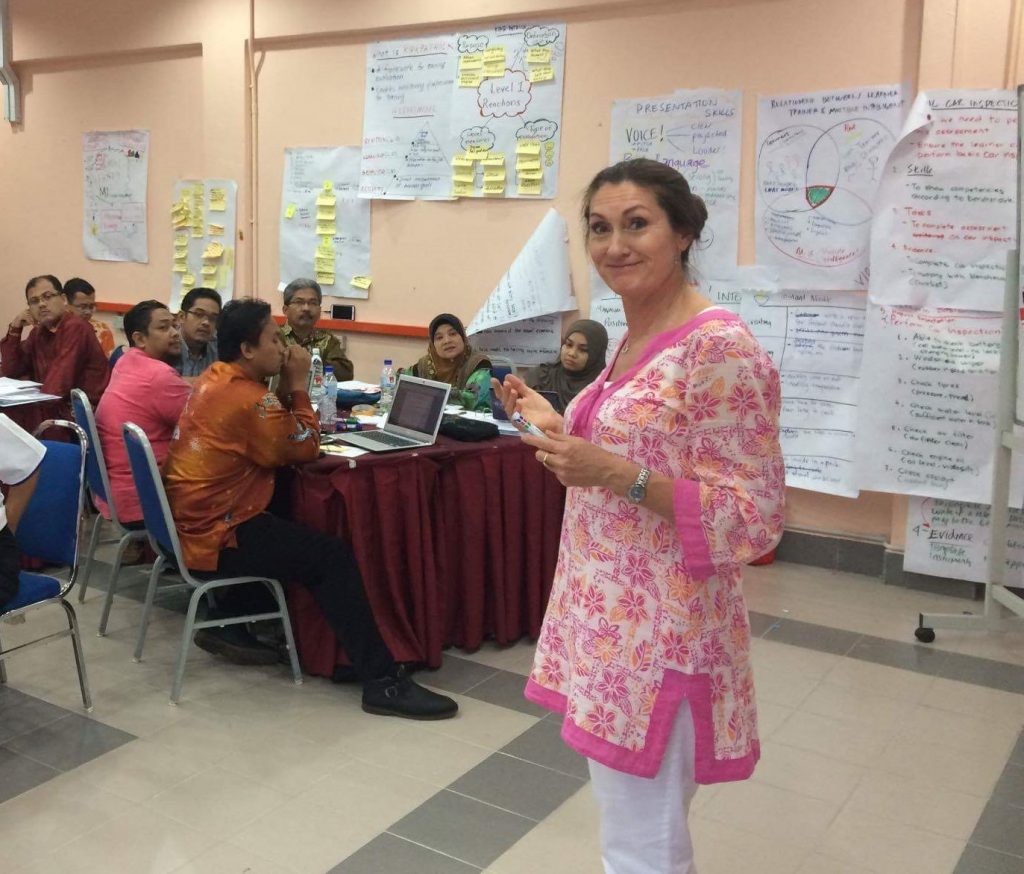
Engaging an external professional facilitator makes it easier and quicker to get outcomes as there is no inherent political bias or power that is obstructing cooperation or impeding trust.
The facilitator’s role is neutral, they make it safe and easy for the group or team to produce the output.
Louise is a great facilitator and kept me interested and got the group back on track when discussions went on a tangent.
- Team Meetings
- Executive Meetings
- Town Hall Meetings
- Strategic Planning
- Scenario Role or Real Playing
- Gaining Group Consensus
- Diversity and Inclusivity Awareness
- Co-creating Vision, Mission, Values and Action Goals
- Change Management Rollouts
- Team Building for New and Established Teams
- Interpersonal Communication Skill Building
- Empathy Mapping and your Customer Journey
- Creating Respectful Workplaces
- Role Reorganisation in Challenging Times
Planning a successful workshop

Example – Oil and Gas
I facilitated the annual strategic planning meeting for a newly established sub-division team in the Oil & Gas Industry. I worked closely with the sponsor to understand the unusual culture and unique issues of the business to maximise credibility with the individual team members and extract the most out of them. The team connected and came together for the first time as a whole team face-to-face in the two days. They freely shared their ideas and perspectives in what they said they considered was a safe environment and produced some excellent future strategies for the region.
I was then recommended for another division in the same organisation in the next quarter. This time the task was to produce a strategic plan for the section and to bring the team together for the first time in the same geographical location. Being a regional team for Asia Pacific/ Australasia, they were dispersed over several countries, states, and time differences. Working in close consultation with the project sponsor I achieved the outcome they were looking for – becoming a real and connected team, armed with the knowledge of how each person preferred to communicate, and how they contributed to the team as a whole. The advantage of being an external facilitator was to enable rapid results as a non-political and neutral observer of the issues with the ability to direct the employees, capture the challenges, options and get the employees volunteering viable solutions. Considerable cost savings through non-duplication of services were generated by the team coming together in this format.

Example – Health
This challenge here was to assist the employees during the transition over to new systems and processes scheduled over a two-year period. The current system was not sufficient for the volume of work currently experienced, and the employees were suffering from productivity pressure, low morale, and stress. Stress leave was increasing and public reputation as a service provider was decreasing. I designed a series of workshops to help the employees take control, be more accountable, improve individual accountability and problem solving, and deal with the stress better during the transition to the new system. Resilience was enhanced and morale lifted. Results included immediate rectification of some of the issues that had been causing some long-term problems. Another outcome was the increased cooperation between departments resulting in higher productivity and co-operation.

International engagements
I am very familiar with working in Malaysia having worked out of the Centre for Instructor and Advanced Skill Training (CIAST) in Shah Alam, and six weeks working from Johor all the way up to Ipoh capacity building, and succession planning on the island of Langkawi for the Malaysian Builders Board.
